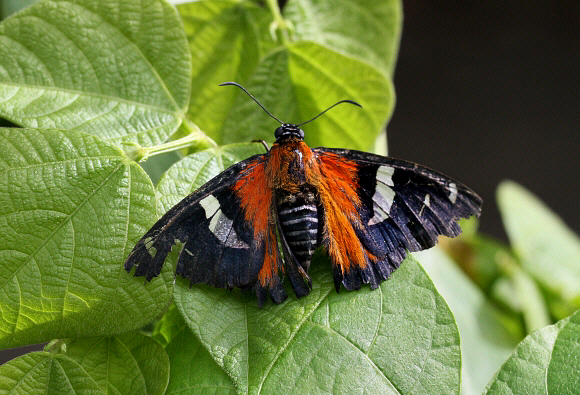
Introduction
The subfamily Pyrrhopyginae comprises 163 known species, most of which are found only in the tropical rainforests and cloudforests of South America, although a few reach as far north as Mexico, and a single species reaches Arizona. They are characterised by having bodies which are very large in proportion to the wings. Other characteristics include a massive muscular thorax, compressed abdominal segments, prominent eyes, and antennae with recurved clubs.
Some genera, including Jemadia and Yanguna have a pattern of hyaline ‘windows’ on the forewings, and are marked with stripes and bands of red, blue or white. Other genera e.g. Mysarbia, Mysoria and Pyrrhopyge lack the hyaline windows, and are characterised instead by having bright pink or red markings on the head and / or on the tip of the abdomen.
The 6 species in the genus Yanguna are all similar, having a black ground colour with a blue sheen, and a hyaline median band on the forewings. In cosyra, thelersa and cometes the basal area of the wings is bright red, but this is vestigial in erebus, and absent in tetricus.
Yanguna cosyra occurs from Guatemala to Colombia and Ecuador.
Habitats
This species occurs in cloudforest at elevations between about 1200-2000m.
Lifecycle
To be completed.
Adult behaviour
Males are incredibly fast on the wing, rocketing about in the vicinity of rivers and waterfalls. When they settle it is invariably high up in a tree.
